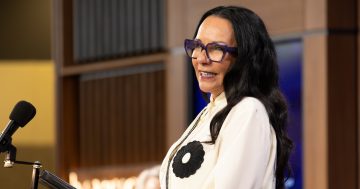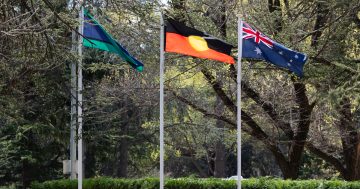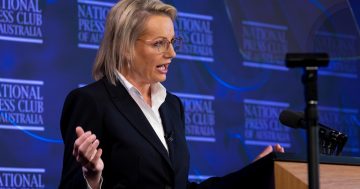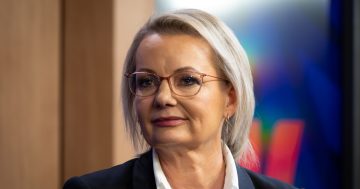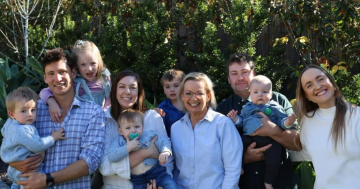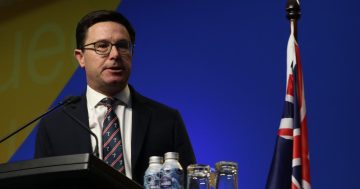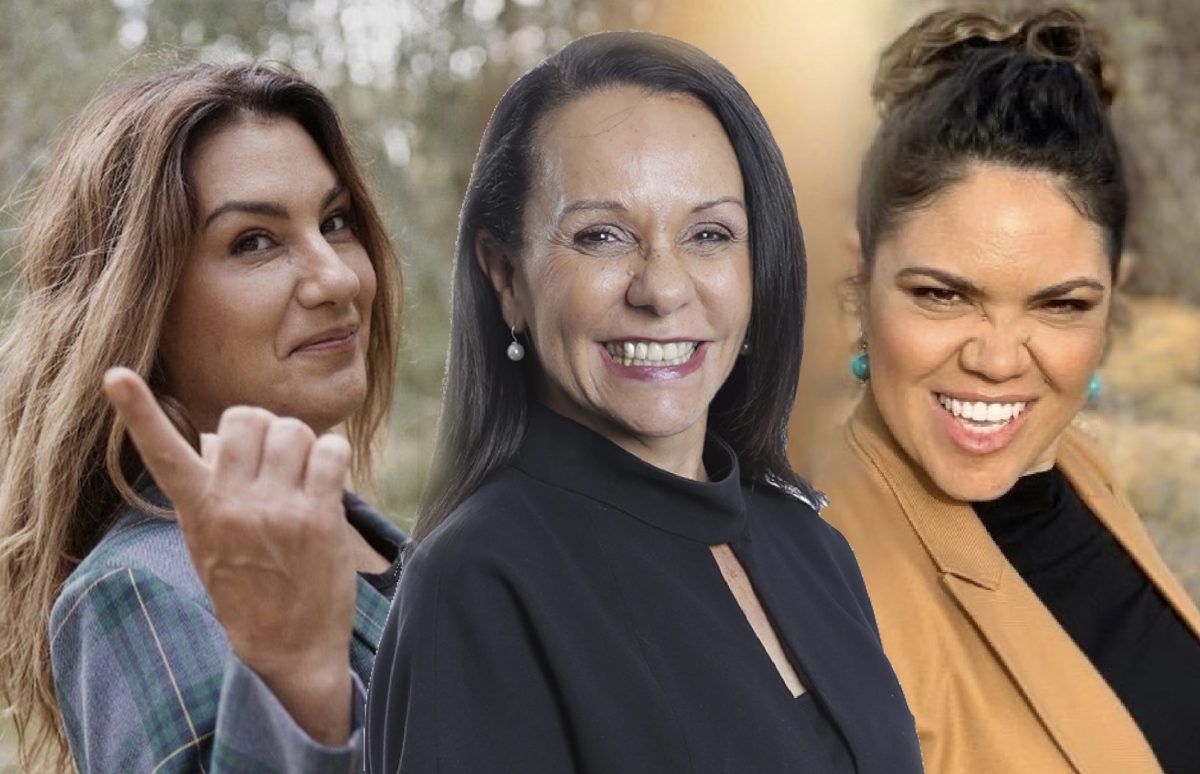
Senator Lidia Thorpe, Minister for Indigenous Australians Linda Burney and Senator Jacinta Price. Photo: Supplied.
At the same time as the Federal Government has taken the first formal step towards a referendum on the Indigenous Voice to Parliament, opponents on the left and right are preparing a pincer movement with their opposing ‘no’ campaigns.
Attorney-General Mark Dreyfus introduced legislation and described the initiative as “a form of constitutional recognition that is practical and substantive”, adding that until First Nations people were recognised in the Australian constitution, we were a “nation missing its heart”.
It was a sentiment echoed by Indigenous Australians Minister and Wiradjuri woman Linda Burney, who said it was about “completing our nation’s birth certificate” and “one step closer to creating a Voice that will ensure the voices of our people are heard. One step closer to improving lives with a Voice that makes a difference”.
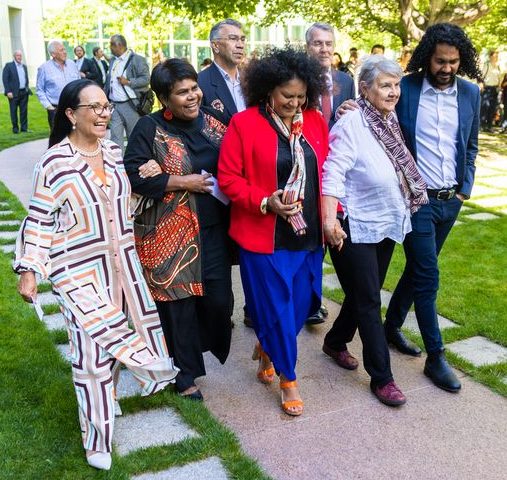
Linda Burney (left) said the Voice was about “completing our nation’s birth certificate”. Photo: Linda Burney/Facebook.
But as proponents of the Voice know, it’s unlikely to be a smooth path forward as two outspoken Aboriginal senators, Jacinta Nampijinpa Price on the right and Lidia Thorpe on the left, polarise supporters away from the centre.
A battle of ideas is not a bad thing and moderates looking for a warm and fuzzy solution to assuage colonial guilt should be challenged to take a long hard look at the complexity of the issues at stake.
Ms Thorpe and Ms Price are strong, proud Aboriginal women and represent some of the diverse viewpoints of First Nations Australians, but with the latest polls suggesting that around 80 per cent of Indigenous people are in favour of the Voice, they are in the minority.
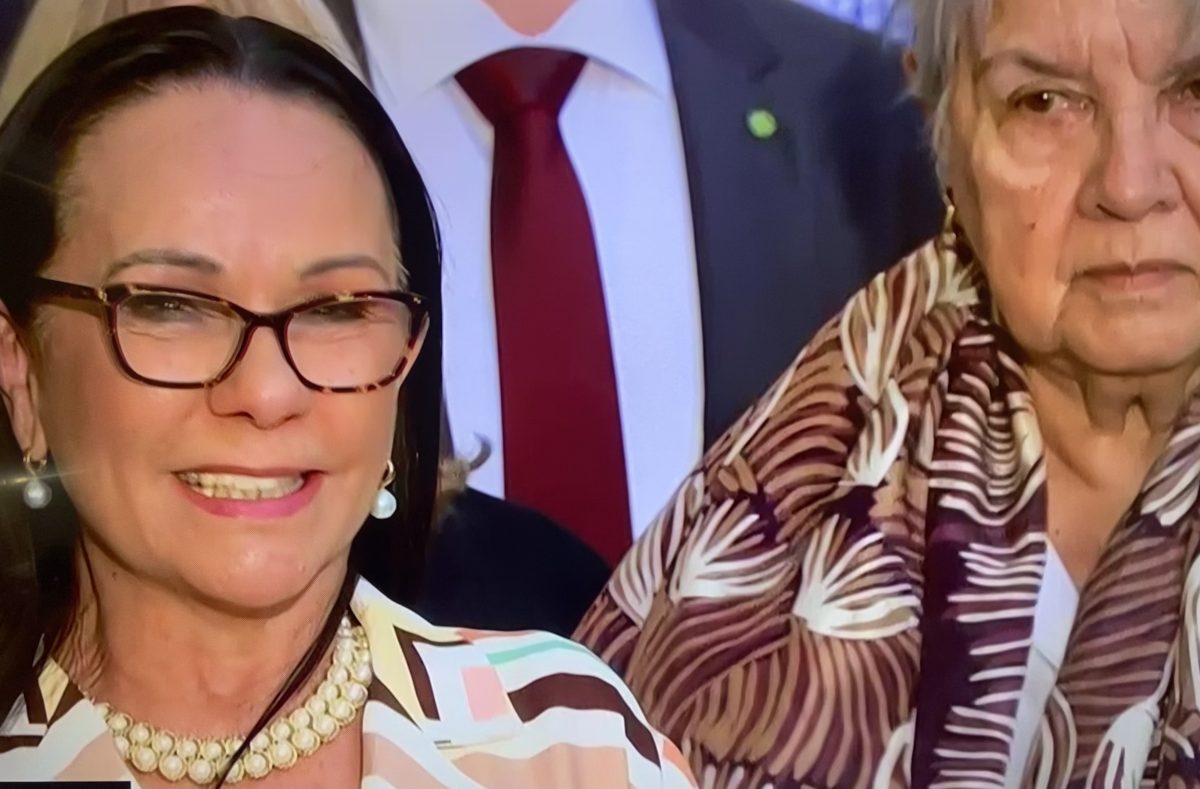
Minister for Indigenous Australians Linda Burney talks referendum with Aunty Pat Anderson in support. Photo: Supplied.
“There will always be those that seek to hold us back. Those doubters, those wreckers, they want to hold Australia back,” Ms Burney has declared, not mincing her words.
“We want to take Australia forward, more united, more hopeful and more reconciled than ever before.”
Lidia Thorpe has been a consistently vocal critic of the Voice, calling instead for a treaty and a raft of reforms on deaths in custody and the removal of children first; however, she insists that she is keeping her options open and may yet be swayed.
The issues around ‘sovereignty’ that Thorpe raises are complex but important to many Aboriginal people and the implementation of recommendations from the Royal Commission into Aboriginal Deaths in Custody and the Bringing them Home Report have indeed been languishing in the ‘too hard basket’ for decades.
But in her drive to protest everything, everywhere, all at once, Thorpe risks drowning out her own message and creating a bogeyman for those eager to dismiss her ‘radical’ ideas.
The fiery DjabWurrung Gunnai Gunditjmara woman was at the centre of two seemingly contradictory incidents this month that are already being used to question her character and undermine the authenticity of her outrage.
On 29 March, Alyawarre woman Aunty Pat Anderson had a public run-in with Ms Thorpe who allegedly heckled her over her support for the Voice and reduced her to tears at Canberra Airport.
Ms Anderson is one of the architects of the foundational Uluru Statement from the Heart, a member of the Referendum Engagement Committee and the author of the Bringing them Home Report, regularly cited by Ms Thorpe.
When confronted by another Aboriginal woman over her alleged behaviour towards an elder, Ms Thorpe is reported to have answered, “Where’s a elder, I don’t see no elder, she’s not my elder”.
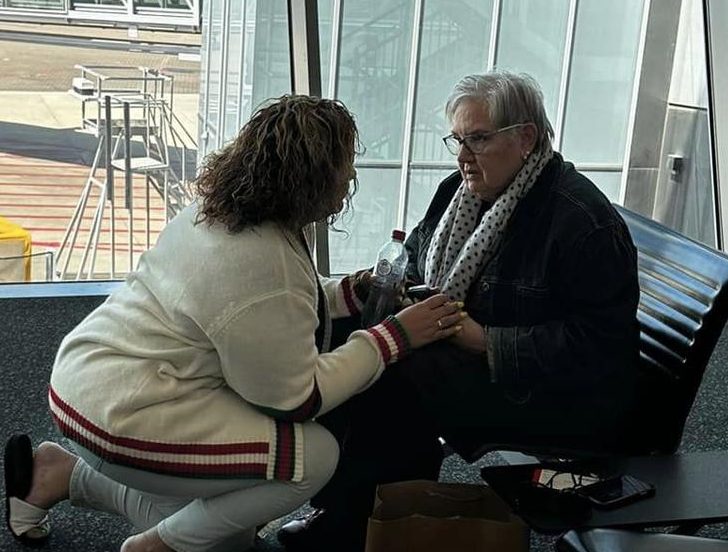
Aunty Pat Anderson is comforted by a friend after an alleged encounter with Lidia Thorpe. Photo: Merv Aubrey/Facebook.
The second incident took place in the Senate as Ms Thorpe berated Liberal Senator Hollie Hughes for interrupting her.
As Ms Thorpe began her Acknowledgment of Country, Ms Hughes was heard to mutter, “How many times has that happened today?”
An outraged Ms Thorpe declared the comment and the senator racist: “Can I just call out racism in this chamber right now, please?” she demanded, sparking a round of acrimonious finger-pointing from both sides.
Ms Hughes’s comment was indeed culturally insensitive, but the response from Thorpe is something of a paradox.
On the one hand, she demands that culture and generalised tributes to “elders past, present and emerging” be respected as sacrosanct while on the other, she publicly berates a recognised elder she disagrees with and is dismissive of her cultural authority.
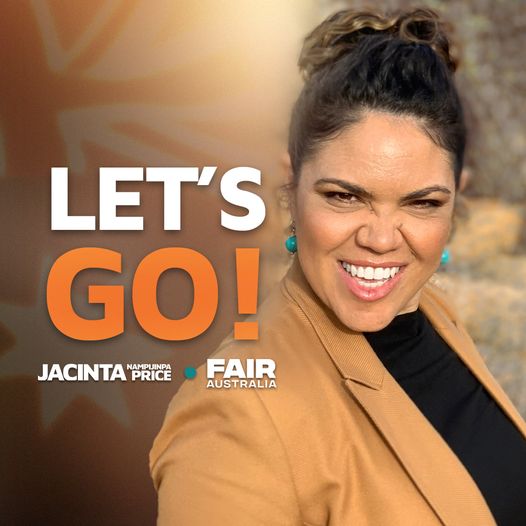
Jacinta Price is leading the conservative ‘no’ campaign. Photo: Jacinta Price/Facebook.
On the other side of the three-cornered referendum battle is Anglo-Celtic and Warlpiri woman Jacinta Nampijinpa Price who is the darling of the conservative right.
Her ‘Fair Australia’ campaign has almost 90,000 signatures endorsing her message that “Australians should be one, together. Not two, divided.” and pledging to vote ‘no’.
“The Voice will drive a wedge between Indigenous peoples and divide Aussies by race. It will be a dividing line through the heart of our nation,” she declares.
“It’s divisive, it’s dangerous, it’s expensive and it’s not fair.”
Ms Price contends that the Voice would cast all First Nations people as disadvantaged and create a “separate entity” that would fail to represent their diversity of views and differing needs.
She wants to focus on the immediate issues of communities in crisis rather than symbolism and makes the point that the record number of First Nations members in Australia’s Parliament renders the Voice obsolete.
She raises valid concerns and provides an important counterpoint to oversimplified solutions, but all too frequently her name and Aboriginality are used as a trump card by conservative pundits to endorse an either/or position on symbolism versus practical solutions.
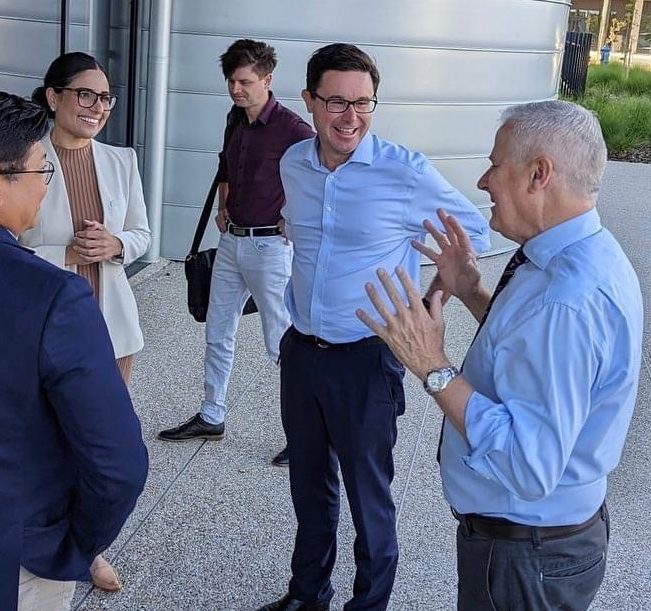
David Littleproud explained the Nationals’ opposition to the Voice while visiting Wagga. Photo: Supplied.
On a recent visit to Wagga, Nationals leader David Littleproud used Ms Price and fellow ‘no’ advocate Warren Mundine’s position as an example of why his party had declared its early opposition to the Voice.
“I think you’ve got to be careful not to generalise what Indigenous Australians are saying about this,” he said, before evoking the minority perspective as articulated by Ms Price.
“When you’ve got two Indigenous Australians, Warren Mundine and Jacinta Price, leading the ‘no’ case, it says to me that not all Indigenous Australians believe in this,” he said, suggesting that local solutions, rather than “another layer of bureaucracy” offered better outcomes.
Mr Littleproud is undoubtedly sincere when he says, “There is no malice, just genuine intent from the Nationals to close the gap”, but the view that differing opinions would disqualify a Voice to Parliament designed by Indigenous leaders and with the support of the majority of First Nations Australians seems disingenuous in a representative democracy.
And so the campaign begins.
Later this year, Australians will be asked, Do you support an alteration to the Constitution that establishes an Aboriginal and Torres Strait Islander Voice?
There are many perspectives and many sides to this issue so we must be careful not to let the political noise and the loudest voices drown out the underlying thesis of the Uluru Statement from the Heart that was signed by 250 Indigenous delegates from across Australia.
Read it for yourself, weigh each perspective on its merits and vote for a better Australia for all our citizens.
And whether you vote ‘yes’ or ‘no’ on a Voice to Parliament, remember to listen to the First Nations voices that are already speaking in your community.







